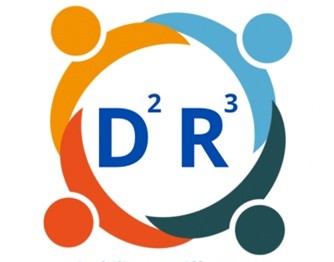Einstein-Montefiore CTSA UM1 Element E Research Project

According to the Centers for Disease Control and Prevention (CDC), 1 in 4 US adults in the U.S. have a disability. For example, adults with (vs. without) disabilities have higher rates of obesity (41.6% v. 29.6%), smoking (21.9% v. 10.9%), heart disease (9.6% v. 3.4%), and diabetes (15.9% v. 7.6%), and lower rates of preventive care (e.g., mammograms, cervical cancer screening). Disabilities may be present at birth or acquired, of visible or non-visible, and of varying functional impacts.
![Presentation 1]()
This Element E project is a mixed-methods study focused on researchers’ knowledge and perceptions about including disability in their research and addresses translational research challenges that create roadblocks for disability research. Our overarching goal is to close the gap in health outcomes for adult PWDs, especially as growing numbers of children with autism and other disabilities transition to adulthood and to ensure everyone benefits from NIH-funded research.
Seeking Researchers: Participate in D2/R2
In our current phase of the study, we are evaluating an online learning module created with community partners and fellow researchers about people with disabilities and research—from the perspective of researchers—in a randomized controlled trial (RCT).
![Presentation 2]()
We are looking for study team members (PI, Co-I, Study Coordinators, Research Associates etc) whose current research is focused on adults (not specifically on disabilities). Participation involves an online session (~60 mins) and a follow-up survey (~15 mins). You can receive up to $75 for you time (payable as a gift card or charitable donation).
Our CTSA Hub Partners
If you are interested in learning more, please contact Dr. Karen Bonuck, Principal Investigator of D2/R3: karen.bonuck@einsteinmed.edu and Patrick George III, Study Coordinator of D2/R3: Patrick.georgeiii@einsteinmed.edu
- Bonuck K, Fishman A. Reducing translational science roadblocks to disability research. Journal of Clinical and Translational Science. 2025;9(1):e174. doi:10.1017/cts.2025.10073
- Researchers’ Roadblocks to Including People with Intellectual and Developmental Disabilities (DD) in research: Translational Science and I/DD Program Leaders Insights Journal of Clinical and Translational Science. 2026;10(1):e2. doi:10.1017/cts.2025.10213
- Qualitative Coding Guide: document developed to identify accessibility needs for community partners assisting with a manuscript write-up.
-
-

Bonuck, K. and Lounsbury, D.W., 2024. The influence of photographic representations on US medical students’ attitudes and beliefs about persons with disabilities: a qualitative study. Teaching and Learning in Medicine, pp.1-14.
January 9, 2025
Leadership:
-
![Karen A. Bonuck, Ph.D.]()
Principal Investigator, D2,R3 Project